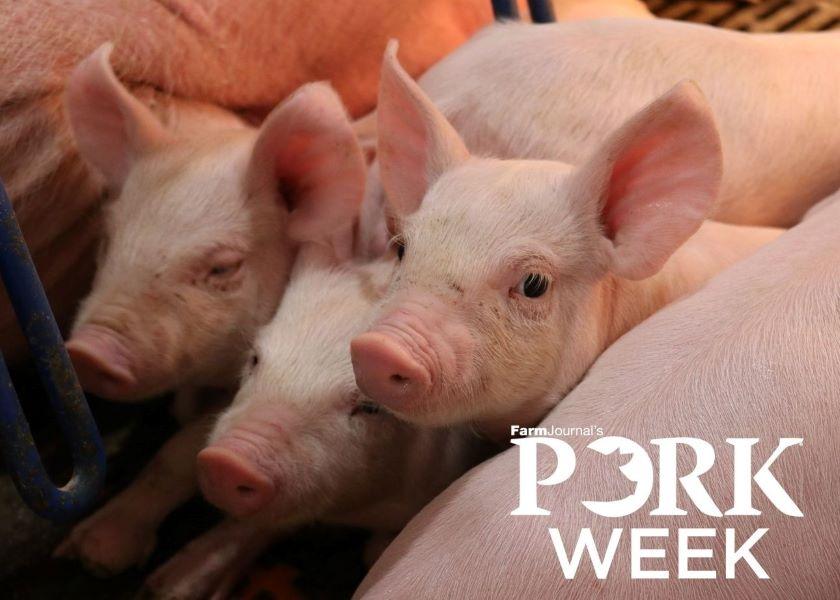The 'Unfunded Mandate' and Three Perplexing Realities Of Prop 12

On May 11, the pork industry shook after hearing of the Supreme Court’s decision to uphold Proposition 12.
While there are many industry challenges and changes yet to be unpacked from this decision, here are three unfortunate realities found along the road to Prop 12 becoming law that are both perplexing and disheartening to pork producers across the country.
Reality 1: The Supreme Court chose to uphold Prop 12, in a 5-4 decision, yet shared future case arguments.
Specifically, Judge Brett Kavanaugh alluded to further challenge ahead in his dissent comments.
Kavanaugh’s opinion noted that though the Supreme Court rejects the plaintiffs’ dormant Commerce Clause challenge as insufficiently pled, state laws like Proposition 12 implicate not only the commerce Clause, but also potentially several other constitutional provisions, including the Import-Export Clause, the Privileges and Immunities Clause, and the Full Faith and Credit Clause.
“I do not take a position here on whether such an argument ultimately would prevail,” Kavanaugh writes. “I note only that the question warrants additional consideration in a future case. Under this Court’s precedents, one State’s efforts to effectively regulate farming, manufacturing, or production in other States could raise significant questions under that Clause [Privileges and Immunities Clause]. Again, I express no view on whether such an argument ultimately would prevail. But the issue warrants further analysis in a future case."
Reality 2: Prop 12 began as a ballot initiative in California, not backed by consumer buying preference.
Through the collection of several signatures of California citizens, Proposition 12 was included on the Nov. 6, 2018, ballot by petition. As Lee Schulz, livestock economist at Iowa State University explains in a recent Farm Country Update, citizens voted but not necessarily with their dollars in mind.
“There's past examples where citizens went to the polls, and they outlawed the production of a good or a production practice that they routinely bought already resulting in this kind of so called ‘vote versus buy gap,’” Schulz says. “So they're voting, not necessarily with their dollars, because we see that when they go to the grocery store, they're buying that certain production practice.”
Schulz says he’s heard it called an “unfunded mandate,” which leads to voters requiring producers to adopt costly production practices, while shoppers have already revealed they are unwilling to pay sufficient compensation in the marketplace.
Additionally, if this practice of pork production was consumer-driven, it’s likely that there would have already been a voluntary shift by some producers to meet the consumer demand, capitalize on the premium and maximize profits, Schulz explains. However, this was not the case, and now we’re going to see how much consumers are willing to pay for this production change.
Reality 3: Good animal care goes far beyond space requirements.
Considering the Prop 12 requirements, Josh Trenary, executive director of Indiana Pork Producers Association, notes the conversation around the law should be about addressing animal care in a way that actually matters.
“There's all kinds of production methods out there that can be the basis of great animal care,” Trenary says. “It's the combination of the production method itself, care and level of management for the people that are operating a farm that that make good animal care. There are real practical ways out there to ensure, for the animal and for the consumer, that there's a proper intersection between the production methods and that level of care management from the people—without having to enact some arbitrary standards.”
While some states have broad animal care laws or no government regulation at all, there are industry standards already in place that address many aspects of animal care that may be of concern to consumers, Trenary adds.
More thoughts and opinions from Schulz and Trenary, as well as Scott Hays, president of National Pork Producers Council, have been shared on the recent Farm Country Update. The full conversation can be found here.
We will be uniting together June 5-11 for PORK Week across all of our Farm Journal platforms to elevate the important role the pork industry plays in feeding the world. Share your stories and post photos on social media using #PORKWeek23 to help us honor the pork industry. From “AgDay TV” to “AgriTalk” to “U.S. Farm Report” to PorkBusiness.com and everything in between, tune in and join us as we acknowledge the most noble profession there is: feeding people.
More on Proposition 12:
Special Alert: California Proposition 12 Releases New Guidance
How Will Proposition 12 Affect U.S. Exports and Imports of Pork?
Prop 12 Response: Iowa Lawyer Says ‘Don’t Make Any Rash Decisions’







